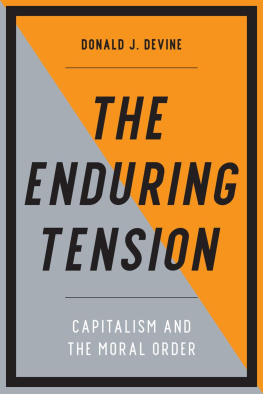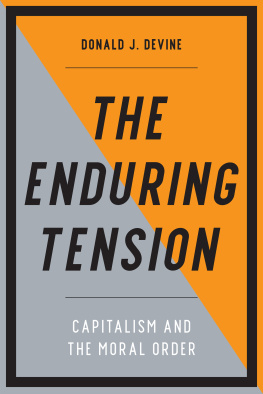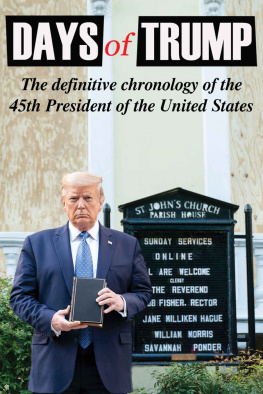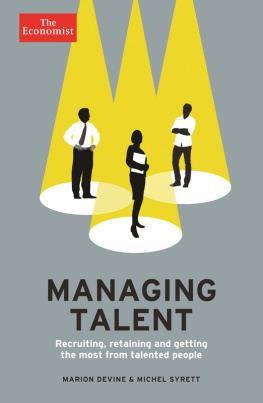Praise for The Attentive Public
A major contribution to the literature on empirical modifications of democratic theory.
Samuel Kirkpatrick, Texas A&M University,
Midwest Journal of Political Science
An excellent example of a fresh look at one of the most basic questions in the empirical study of democracy, the relationship between popular demands and outputs.
Arend Lijphart, University of Southern California, San Diego,
Comparative Politics
Praise for The Political Culture of the United States
Few books serve more admirably the dual tasks of introductory survey and monograph.
Glenn R. Parker, Miami University,
American Political Science Review
One of the most distinguished pieces of secondary analysis in the field.
Gabriel Almond, Stanford University, Analytic Studies in Comparative Politics
A thorough examination of American political culture based upon survey data.
Alan Monroe, Illinois State University,
Public Opinion in America
A valuable piece of synthesizing.
James Danielson, Morehead State University,
The Journal of Politics
Praise for Does Freedom Work?
Refreshing and thought provoking.
George Carey, Georgetown University,
The Political Science Reviewer
Wonderfully useful.
William F. Buckley Jr.,
National Review
Praise for Reagans Terrible Swift Sword
An extraordinarily creative combination of inside information and sophisticated social science analysis.
Aaron Wildavsky, University of California, Berkeley
This is an important first-hand book about democracy and bureaucracy.
Richard Nathan, State University of New York, Albany
Praise for Americas Way Back
At last someone has produced a worthy successor to Frank Meyers classic In Defense of Freedom.
Edwin J. Feulner, The Heritage Foundation
Too many conservatives have forgotten that freedom and tradition, limited government and conservative morality, stand or fall together. Devines fine new book, a vigorous defense of fusionism, provides a much-needed reality check.
Edward Feser, Pasadena City College
A philosophical, historical, and political tour de force. Must readan outstanding book.
Lee Edwards, author of William F. Buckley Jr.:
The Maker of a Movement
Americas Way Back follows on the work of my father, Frank Meyer, showing that libertarianism and traditionally oriented conservatism, while sometimes conflicting in specific policy areas, are complementary and vital as bulwarks of the West.
Eugene B. Meyer, The Federalist Society
Both enjoyable and compelling. Informed by the insights of James Madison, Adam Smith, and Alexis de Tocquevilleand William F. Buckley Jr., Frank Meyer, and Ronald ReaganDevine shows how we can recover what we have lost. An intellectual journey to be savored.
Mark Levin, nationally syndicated radio host
Reagan had a heckuva lieutenant in Donald Devine. It is good to see him now mentoring the next generation of conservative leaders.
L. Brent Bozell III, Media Research Center
The solution for the modern GOP This book provides plenty of intellectual ammunition.
Senator Rand Paul
A trenchant critique of the flaws and failures of statist progressivismand a powerful case for a revived conservative alternative. Conservatives of all stripesand progressives toowill benefit from a close reading of this discerning and very timely book.
George H. Nash, author of The Conservative
Intellectual Movement in America Since 1945
THE ENDURING TENSION2021 by Donald J. Devine
All rights reserved. No part of this publication may be reproduced, stored in a retrieval system, or transmitted, in any form or by any means, electronic, mechanical, photocopying, recording, or otherwise, without the prior written permission of Encounter Books, 900 Broadway, Suite 601, New York, New York, 10003.
First American edition published in 2021 by Encounter Books, an activity of Encounter for Culture and Education, Inc., a nonprofit, tax-exempt corporation.
Encounter Books website address: www.encounterbooks.com
Manufactured in the United States and printed on acid-free paper. The paper used in this publication meets the minimum requirements of ANSI/NISO Z39.48-1992 (R 1997) (Permanence of Paper).
FIRST AMERICAN EDITION
Library of Congress Cataloging-in-Publication Data
Names: Devine, Donald John, 1937 author.
Title: The enduring tension: capitalism and the moral order by Donald J. Devine.
Description: New York: Encounter Books, [2020] Includes bibliographical references.
Identifiers: LCCN 2020012444 (print) | LCCN 2020012445 (ebook) ISBN 9781641771511 (cloth) | ISBN 9781641771528 (epub)
Subjects: LCSH: Capitalism. | Income distribution. Civilization, Western. | Economic history.
Classification: LCC HB501.D439 2020 (print) LCC HB501 (ebook) | DDC 330.12/2dc23
LC record available at https://lccn.loc.gov/2020012444
LC ebook record available at https://lccn.loc.gov/2020012445
Interior page design and composition by Bruce Leckie
Dedicated to my family, to my intellectual home at The Fund for American Studies, and to the numerous friends, associates and groups who have assisted me in this endeavor, especially Bob Luddy, Bill and Berniece Grewcock, and my spouse and top supporter Ann Devine.
Western civilization under its capitalist economic order has produced a worldwide cornucopia of consumer goods and a remarkable improvement in human health. But few among the beneficiaries are grateful. Many in the West are instead reconsidering socialism as an alternative economic order and way of life.
Capitalist civilization, and the freedom and wealth associated with it, have long been objects of criticismfrom thinkers such as Jean-Jacques Rousseau, Charles Dickens, and Karl Marx, down to politicians including Bernie Sanders and sometimes even Donald Trump. The economic historian Joseph Schumpeter, while sympathetic to capitalism, argued in the 1940s that its civilizational walls were crumbling, and he predicted a probable collapse.
These critiques demand a response, for there is much to say on the other side of the question. This book examines the historical, scientific, moral, and philosophical assumptions that underlie the criticisms of capitalism and its civilization from various quarters. Then it considers what would be required for a new generation to build the scaffolding that might hold the walls and preserve the cultures positive characteristics.
The award-winning financial columnist Robert Samuelson called Schumpeter the prophet for his description of capitalism as a form of creative destruction and for his understanding of its true strengths Schumpeters classic work, Capitalism, Socialism and Democracy, was among the most influential and broadly read treatises of the later twentieth century, not only in history and economics but perhaps even more so in my own field of political science, where it was required reading for many years. Schumpeter had many valuable insightson where Marx was wrong and right, on the creativity of capitalism, on the importance of feudalism in forming capitalism, on Western democracy, on elections and elites, and on the possibilities of a freer form of socialism than what Marx envisaged. But the essence of his thought was that the capitalism and freedom that generated productivity and widespread prosperity in the West required supporting institutions to legitimize the moral beliefs and legal principles that undergirded this success. Indeed, Schumpeter predicted that capitalism was likely to be superseded by some form of administrative socialism if it did not develop and maintain a countervailing legitimacy.















